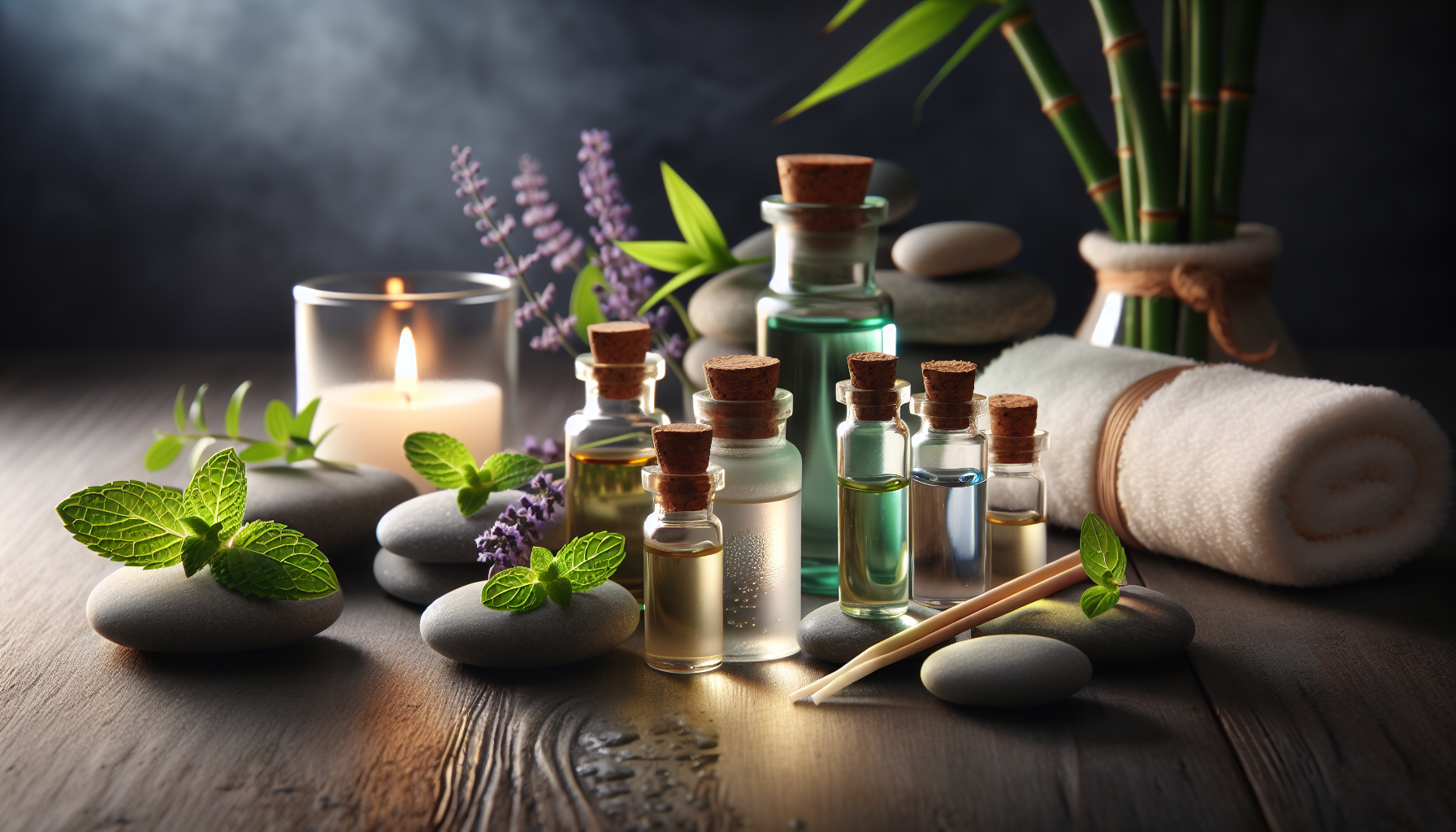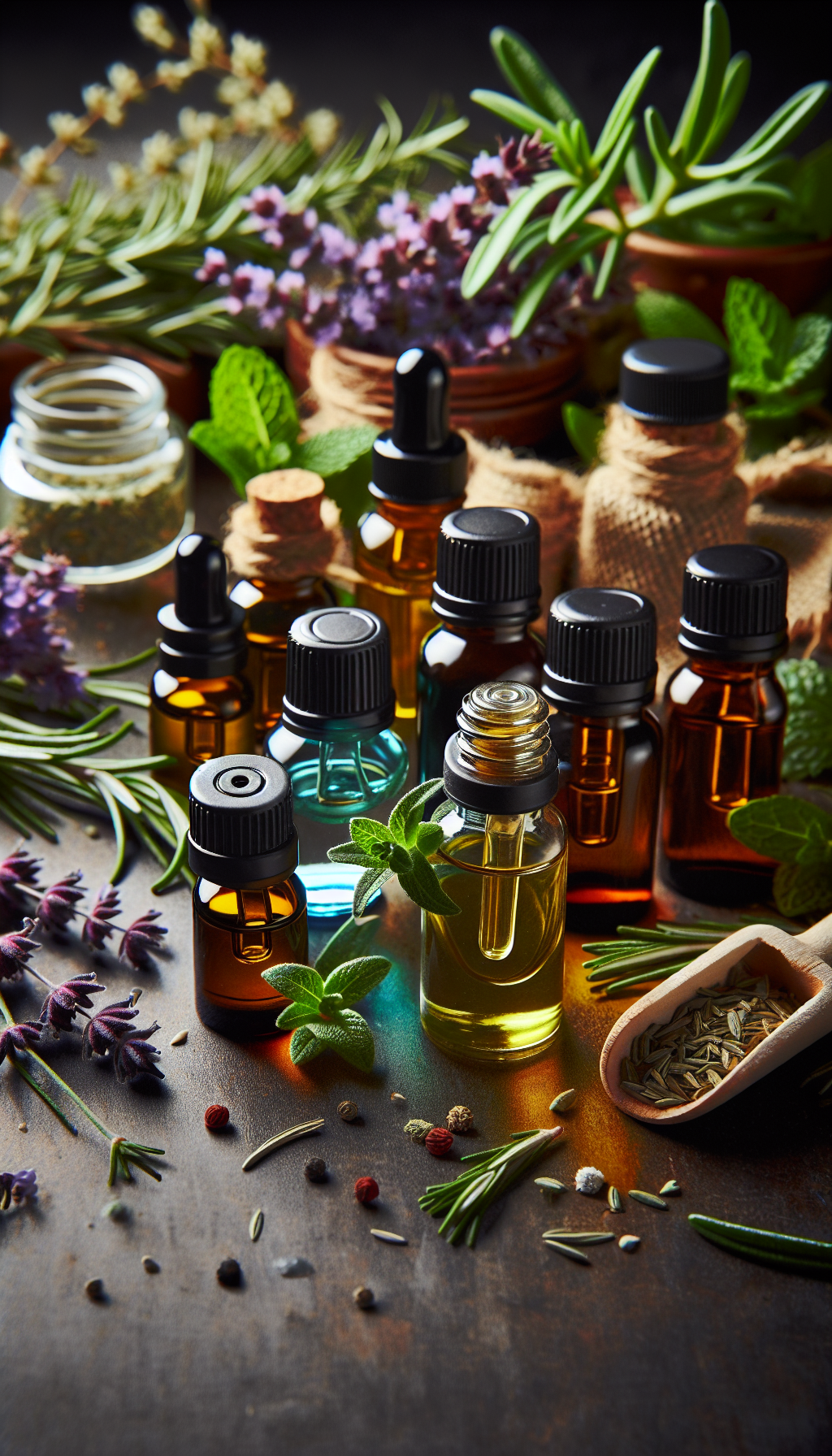Essential oils have been used for centuries for their therapeutic properties, and in recent years, they’ve seen a resurgence as a cornerstone in holistic skin care. Harnessing the power of these concentrated plant extracts can lead to a multitude of skin health benefits, from combating acne to enhancing skin’s natural glow. This comprehensive guide will explore how essential oils can be integrated into your skin care routine, the science behind their efficacy, and practical tips to ensure you reap the maximum benefits.
The Science of Essential Oils in Skin Care
Essential oils are potent, concentrated liquids extracted from plants. They are obtained through distillation or cold pressing, capturing the essence of the plant’s fragrance and therapeutic properties. When applied to the skin, essential oils can deliver powerful benefits due to their chemical composition, which often includes anti-inflammatory, antimicrobial, and antioxidant compounds.
For instance, the widely-acclaimed tea tree oil contains terpinen-4-ol, known for its antibacterial and antifungal properties, making it a popular choice for treating acne and other skin infections. Similarly, lavender essential oil, with its calming linalool component, can soothe irritated skin and enhance relaxation.
Integrating essential oils into a skin care regimen can also help address specific concerns such as dryness, aging, and uneven skin tone. However, it’s important to understand that essential oils are highly potent and should be used with caution. Proper dilution in carrier oils, like jojoba or sweet almond oil, is crucial to avoid skin irritation.
Benefits of Essential Oils for Skin Health
Acne Control and Skin Cleansing
Oils like tea tree and lavender have antiseptic properties that help in reducing acne-causing bacteria on the skin. Incorporating these oils into your routine can help keep your pores clean and reduce outbreaks. For more in-depth information on tea tree oil’s benefits, consider reading "The Benefits of Tea Tree Oil for Skin Health and Acne Control".
Anti-Aging and Skin Rejuvenation
Some essential oils, such as frankincense and rosehip, are known for their anti-aging effects. They can help promote skin cell regeneration, improve elasticity, and reduce the appearance of fine lines and wrinkles. The antioxidants in these oils combat free radicals, which contribute to premature aging. For additional insights on skin aging, "The Impact of Sleep Quality on Skin Aging and Rejuvenation" is a valuable resource.
Moisturizing and Hydration
Dry skin can benefit from oils like sandalwood and chamomile, which have emollient properties that help hydrate and lock in moisture. In arid climates, maintaining skin hydration can be particularly challenging, making the advice in "Strategies for Moisturizing Dry Skin in Arid Climates" especially relevant.
Soothing Sensitive Skin
For those with sensitive skin, gentle oils such as calendula and chamomile can provide soothing benefits without causing irritation. These oils have compounds that help reduce redness and calm skin inflammation.
How to Integrate Essential Oils into Your Routine
When incorporating essential oils into your skin care routine, it’s essential to prioritize safety and efficacy. Here are some steps to follow:
-
Patch Test: Before using any essential oil widely, do a patch test on a small area of skin to ensure you don’t have an adverse reaction.
-
Dilution: Always dilute essential oils with a carrier oil before applying them to your skin to minimize the risk of irritation.
-
Application: Apply the diluted oil to specific areas of concern or use it as part of a relaxing facial massage routine.
-
Storage: Keep essential oils in dark, cool places to preserve their potency and shelf life.
-
Consultation: If you have a serious skin condition, it’s advisable to consult with a dermatologist before adding essential oils to your skin care regimen.
Choosing the Right Essential Oils
Selecting the right essential oils for your skin type and concerns is vital. Here are some recommendations:
- For acne-prone skin: Tea tree, lavender, and clary sage
- For aging skin: Frankincense, rosehip, and myrrh
- For dry skin: Sandalwood, chamomile, and ylang-ylang
- For oily skin: Lemon, geranium, and cypress
- For sensitive skin: Calendula, chamomile, and rose
External Resources for Further Reading
To delve deeper into the benefits and uses of essential oils for skin health, consider exploring these niche resources:
- A study on the topical application of oils and their effects on skin barrier repair.
- A guide on essential oil safety provided by the Tisserand Institute.
- An analysis of natural compounds in essential oils and their antioxidant activities.
Conclusion
Essential oils offer a natural and effective way to enhance your skin care routine, addressing a wide range of skin concerns. When used correctly, they can provide significant benefits, contributing to healthier, more radiant skin. As with any regimen, it’s important to listen to your skin and adjust accordingly. For those interested in a holistic approach to skin health, exploring the extensive content on Avix Health’s Skin Health section can provide additional valuable insights.
Remember, the journey to optimal skin health is a personal one, and essential oils can be a rewarding part of that journey when used with knowledge and care.



